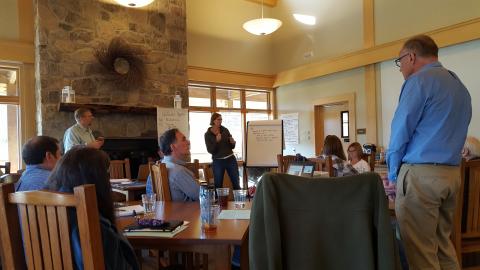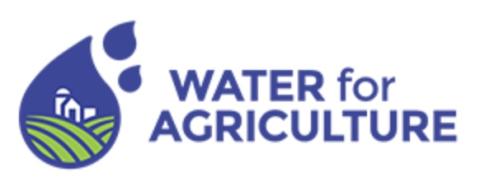Learn more about the Water for Agriculture project.
A few years ago, as NWC director Chittaranjan Ray and University of Nebraska scientists worked with other states on water-related projects, it became obvious one aspect of proposed research was missing: how to best communicate with water end users (stakeholders) to ensure successful mitigation of water challenges.
Mark Burbach, an environmental scientist with the University of Nebraska-Lincoln’s School of Natural Resources, explained: “The biophysical piece is only one component. What can make the biggest difference is knowing what’s important to water users – respecting their values and interests and creating ground-up community-driven solutions.”
In July 2017, the USDA’s National Institute of Food and Agriculture awarded the multistate group $5 million for a four-year project. The research team includes six UNL researchers, with Burbach leading the Nebraska contingent, plus 12 colleagues from Penn State University, Arizona State University, and the USDA’s Agricultural Research Service (ARS). The overall project is led by Penn State rural sociologist Kathryn Brasier.
One of the most powerful aspects of what is now called the Water for Agriculture project is its diverse case study locations representing different water issues and settings. Burbach said, “The end game ultimately is a new model of stakeholder engagement that recognizes water and ag issues are most important to people affected and leads to improved water quality and quantity in their own communities.” The team eventually will make the model available internationally.
In the past two years, researchers interviewed members of 50 Nebraska communities to determine their views of water issues and actions they believe should be taken locally. Countless presentations have been given to local, state and national officials. Others are conducting similar interviews and presentations in Arizona and Pennsylvania, and the team may consult partners in Israel and Australia. The research is expected to help policymakers and regulatory agencies that often lead stakeholder engagements.
In 2018, the researchers began forming local leadership teams to address future water issues. Communities will be surveyed in 2019 and again a couple of years later to identify changes that should be made in community engagements.
In addition to Burbach and Ray, other participants from the University of Nebraska–Lincoln include agricultural economists Lilyan Fulginiti and Richard Perrin, Department of Agricultural Economics; crops-economic risk management extension educator Jessica Grosskopf, Panhandle Research and Extension Center, Scottsbluff; and Daran Rudnick, irrigation management specialist, Department of Biological Systems Engineering.


